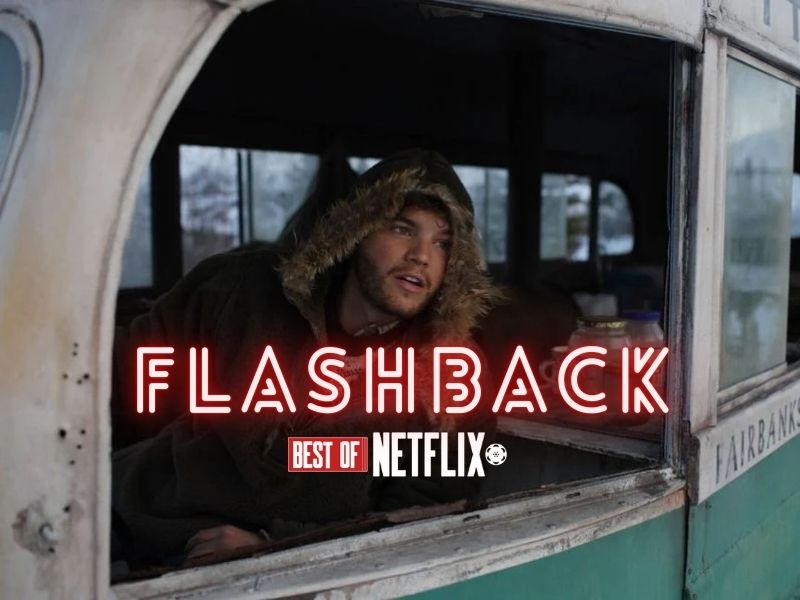As Netflix is continuously piling its figurative shelves with reams of original projects, it’s worth reminding ourselves that they started out by sharing some of the greatest Hollywood titles ever made. So, with Netflix Flashback, we’re looking back at some of the platform’s classic films and reminding ourselves just how great they are. While Netflix is particularly great for snuggling into your sofa and refusing to leave your home, this movie, the brilliant Into the Wild is capable of turning anyone into a full-time traveller.
Now that the pandemic is quietening down, the idea of travelling now seems far more viable, with people no longer needing to holiday vicariously through the glowing promise of television programmes and films. So, to inspire your wanderlust and look to broader shores, we’ve been taking a look into one film that dynamically explores the vast magnificence of the epic Alaskan wilderness.
In 1990, a young college graduate from Emory University renounced the materialism of modernity, rejected the wealth of their parents, donated his college fund to charity and set out into the wild. It’s a wild story that, we would guess, everybody has dreamt of from time to time.
Such is the story for Sean Penn‘s great American roundtrip that recounts the real-life tragedy of Christopher McCandless, a man who disappeared from reality and died in the search of true individual freedom. A film that relies on the breathlessness of isolation to bring trepidation and the freedom of expansive settings to allow us to all dream a little. Well-capturing the bohemian essence of the real free spirit, Emile Hirsch inspires a sense of child-like wonder as he experiences the beauty of North America and Alaska. Whilst Into the Wild is really a tale of complicated morality, it also well reflects the joys of cutting yourself off from the rest of the world and embracing the thrills of nature’s simplicities.
From preparing for Harvard Law to ending up dead in an abandoned bus in Alaska, McCandless’ story is seen as inspirational as well as a cautionary tale. Many adventurers consider McCandless to be a prophetic figure who saw through the illusory nature of our constructed reality by choosing to access the forgotten landscapes of an ancient world. Penn agreed with such assessments as well, claiming that the indifferent hostility of the natural world is important for a better understanding of the human condition.
While talking about his obsession with the narrative, Penn said: “McCandless quotes somebody else in the movie: ‘If just once you put yourself in the most ancient of circumstances…’ This is where nature comes into it–and I think that Eddie and I share this feeling–that every sober-minded person of any belief would probably agree that the biggest issue is quality of life. You’ve gotta feel your own life to have a quality of life, and our own inauthenticity, our corruptions, get in the way of that. The wilderness is relentlessly authentic.”
With the help of Eric Gautier’s mesmerising cinematography and Emile Hirsch’s moving performance as the young man, Penn manages to create a modern American epic about the divide between spiritualism and modern society. He strings together visions of a remote America and contrasts it with life in the American metropolis, indulging in subtextual commentary about McCandless’ escapism, socioeconomic realities and race realism in 21st century America.
Although it is often labelled as a ‘coming-of-age’ story, Into the Wild actually chronicles the regression of McCandless. Unable to cope with the trauma of childhood abuse and radicalised by the romanticism of obsolete idealists like Henry David Thoreau, McCandless decided to retreat into the wilderness where he would not be reminded of his past. In many ways, it was his attempt to conduct the systematic erasure of his own identity. He did so by reminding himself of the insignificance of humanity while getting lost in the majesty of the natural world.
However, that also poses the central conflict for any evaluation of Penn’s adaptation. Is the filmmaker trying to glorify McCandless’ infantile rebellion against technological advancement like Theodore Kaczynski, or is he criticising the entire quest by depicting it as a childish tantrum? Although Penn never comes clear on it and even tries to pass off McCandless’ banal revelation – “Happiness [is] only real when shared” – as something deeply profound.
It is not McCandless on trial but the illusory ideas of American individualism and “ultimate freedom”. As is clearly evident from McCandless’ case, the only liberation he actually experienced was his death in a decrepit van in the middle of nowhere after starving to death. Since Penn is ambiguous on the point, it is up to the audience to see what they will in the sprawling, gorgeous Rorschach test that is Into the Wild.
Watch Into the Wild on Netflix.
